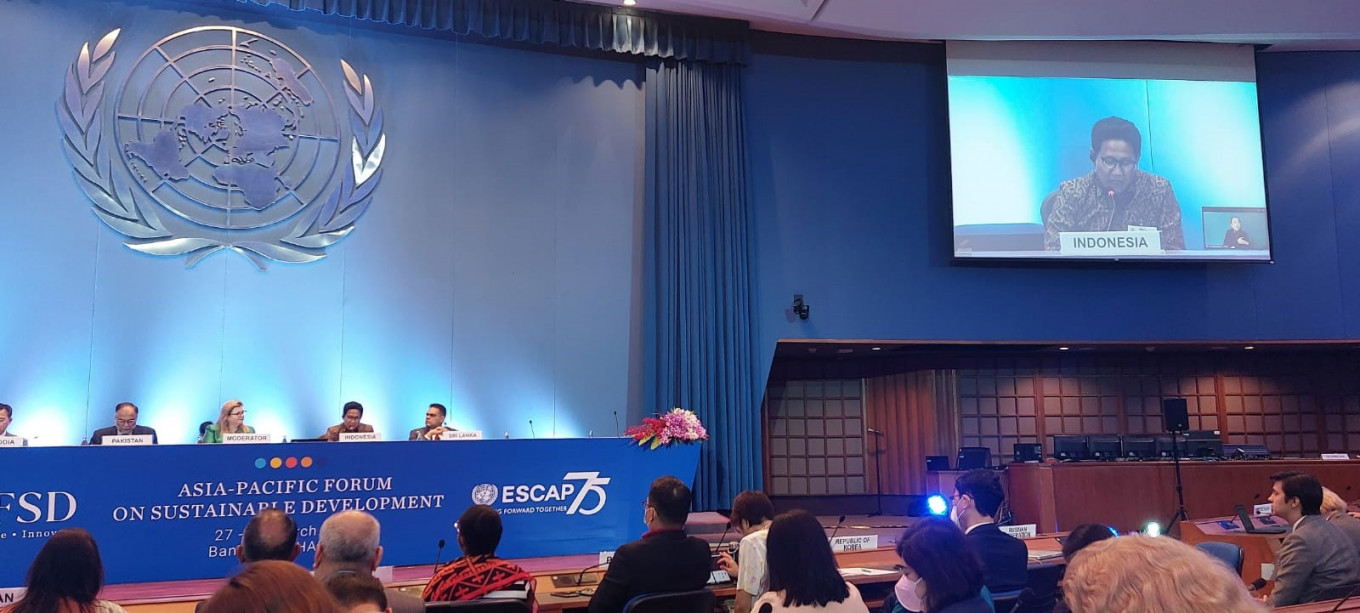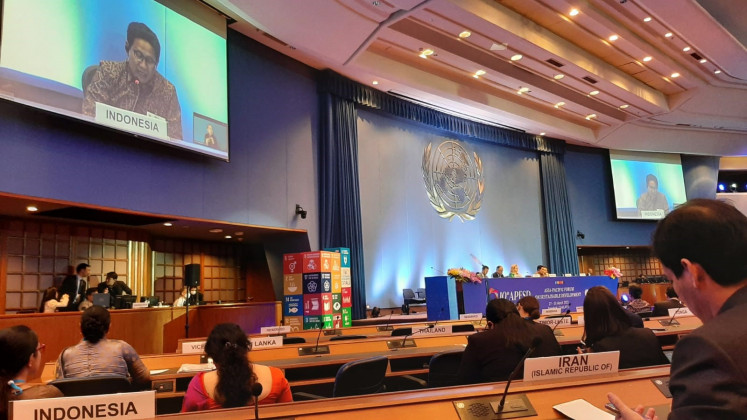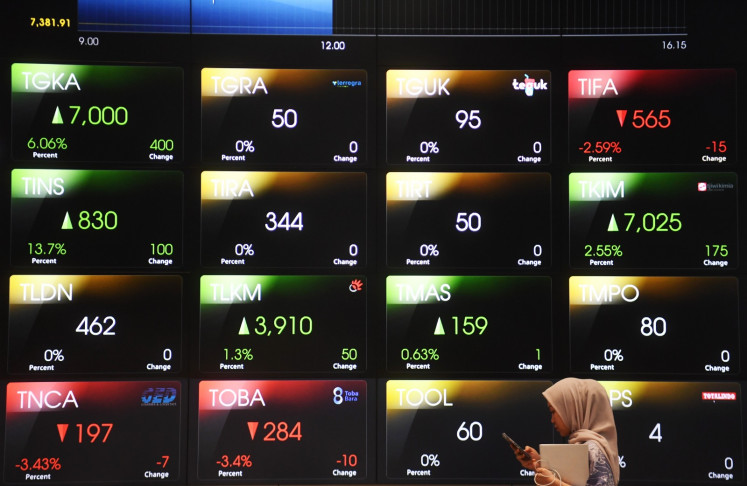Achieving 2030 SDGs requires inclusive strategies: Villages minister
“To ensure the achievement of all [sustainable development goals (SDGs)] by the year 2030, Indonesia proposes an inclusive approach, one where we promote collaboration between all actors.
Change Size

“To ensure the achievement of all [sustainable development goals (SDGs)] by the year 2030, Indonesia proposes an inclusive approach, one where we promote collaboration between all actors, whether that be national or non-national, as well as relevant stakeholders at the national and subnational levels” said Villages, Disadvantaged Regions and Transmigration Minister A Halim Iskandar at the 10th Asia Pacific Forum For Sustainable Development.
Hosted by The Economic and Social Commission for Asia and the Pacific (UNESCAP) in Bangkok, Thailand, from March 27 to 30, the 10th Asia Pacific Forum For Sustainable Development brings together government officials from nations all over the world to discuss important global issues, such as the progress of the United Nations’ Sustainable Development Goals (SDGs).
Halim Iskandar delivered Indonesia’s proposal alongside fellow panelists Pakistan’s Minister of Planning, Development and Special Initiatives Ahsan Iqbal Chaudhary; Sri Lanka's Minister of State for Finance, Economic Stabilization and National Policy, Shehan Asanka; and Cambodian Director General of Planning, Pagnathun Theng.
Iskandar added, “We hope that we can increase collaborative inclusivity so that we can go forward with the implementation of SDGs within the Asia-Pacific region”.
He said the development of Indonesia was imperative to the implementation of the SDGs, both on the national and the subnational scale. On the national level, more than half of indicators have been fulfilled, with only 20 percent of the indicators needing increased focus.
It is worth noting that significant growth has been achieved on the 6th and 11th goals, these being water access and sanitation, hand cleaning facilities, safe public transport, water resources and green open spaces.
“We also experienced an increase in the 7th, 9th, and 17th goals, especially within the area of energy efficiency, sustainable industry, the reduction of carbon emissions and high-tech industry product exports, and availability of data.” Iskandar continued.
Additionally, The National SDG Coordination Team of Indonesia continues to collaborate with regional governments and relevant stakeholders in pushing the implementation of SDGs. As of December 2022, 32 out of 38 provinces in Indonesia had established their own Regional Action Plan, which serves as a foundation for the implementation of SDGs, showing the fruits of their labor.

Furthermore, universities and academic communities are also providing significant contributions by collaborating with regional governments through the 37 SDG centers present across Indonesia. And the last party contributing are international construction partners who are also involved in promoting and facilitating the implementation of SDGs by the regional governments of Indonesia.
Alongside the aforementioned developments, the government is also focusing on overcoming several challenges in achieving SDGs by utilizing disaster prevention management, ensuring equal access to electricity, distributing digital infrastructure, accelerating the completion of industrial areas and providing infrastructure for water supply.
To close his proposal, Iskandar said that through evaluating the implementation and achievement of the SDGs, at the subnational level specifically, the Indonesian government realized that the availability and reliability of data was very important. Therefore, it was important for the government to continue improving data quality and increase disaggregation to provide appropriate support for disadvantaged groups.
This article was published in collaboration with Ministry of Village, Development of Disadvantaged Regions and Transmigration









